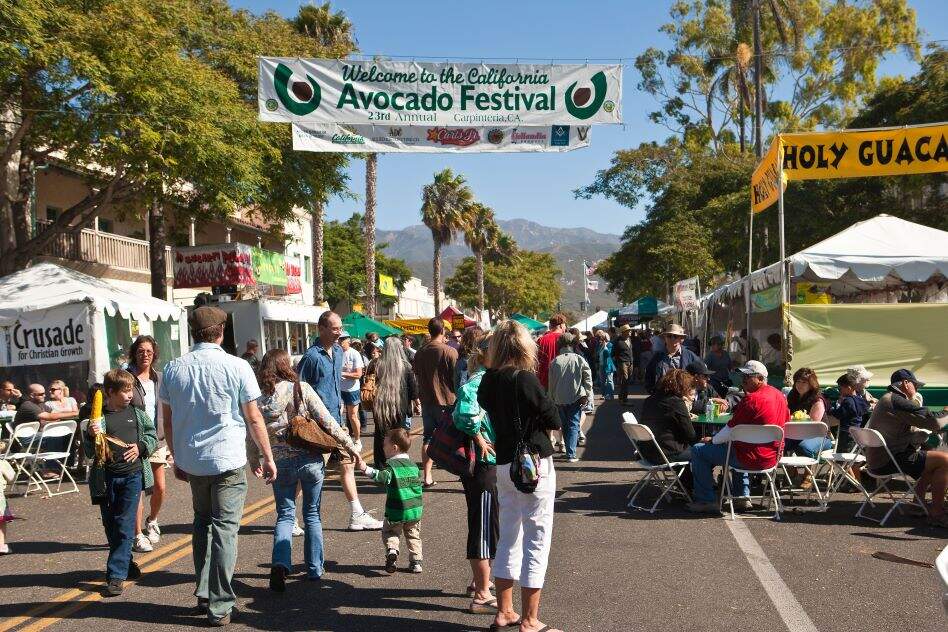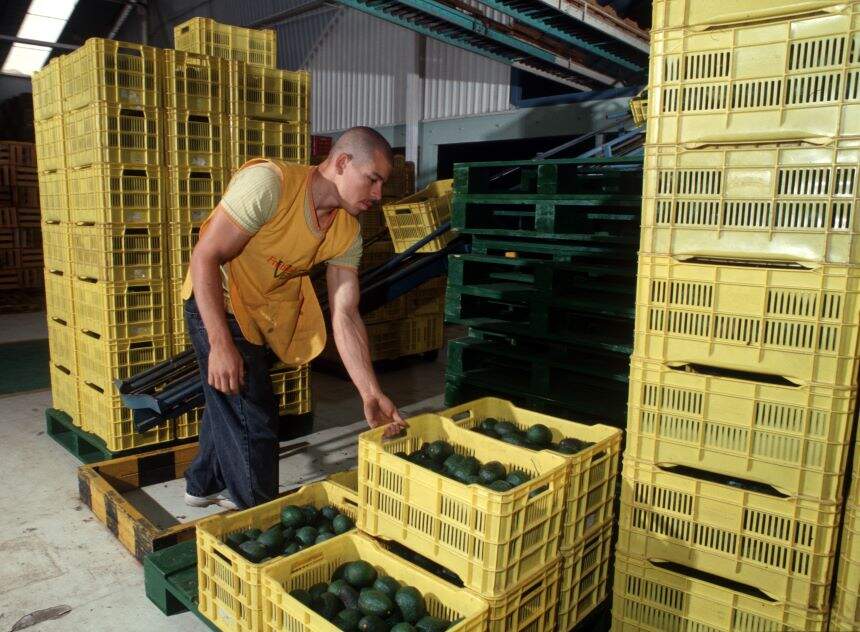The Avocado’s Sustainability Debate: From Hollywood Trend to a Globalized Food System.
Posted on: November 7, 2023
We met with the author of The Avocado Debate, Honor May Eldridge, to find out more about the avocado – the trendy fruit whose popularity has gone global. Her experience on the environmental and social impact of agricultural systems stretches from political to civil society audiences.
She says "What I wanted to do with my book was use the avocado as a hook to talk about that wider food system and all the complexity of how food gets to us in our supermarkets in the global north."
Here we explore with her how the avocado transformed from inexpensive local food, traveled the globe with colonialism and the transatlantic slave trade and then rebranded to evoke Hollywood glamour, health, and wellness. And finally, it’s accessibility to everyone today and the impact of globalized production.
“I look at how food gets to the table from farm to fork and all of the steps in between that we often take for granted,” says Honor May Eldridge, author of The Avocado Debate.
The american pear: The history of the avocado and how we see it today
"Avocados have been cultivated in Mexico and Central America for thousands of years," says Honor. "Originally for Puebla, Mexico, they quickly spread and became central to indigenous foods throughout the region. It is deeply connected with traditional practices and became cultivated across the region. Following the arrival of the Europeans to Central and South America, the avocado spread across the world."
The avocado travels the world with colonialism
"Unlike a lot of crops, the avocado is a product of societal manipulation. The colonial powers realized that it was a very calorific food and was inexpensive, and so it became the food of enslaved people. Then it spread globally because of the oppressive system of colonialism and slavery. That's how the avocado moved from South America to Southeast Asia, Australasia and around the world."
The avocado gets reimagined as a fashionable fruit
"Its adoption into global North diets was the result of a move in 1920s Hollywood when a group of Californian growers decided they wanted to market the avocado and brand it. They created an image of it as a luxury food, one that was associated with health and glamour and the beachy vibes of California. They took it away from its roots in Latinx cuisine and indigenous communities. And that history of manipulation lasts too today.
Today, people still associate it with California's brunch vibes and health, goodness, and wellness. That part of the avocado's journey started in the 20s as a conscious decision by a group of Californian growers who wanted to alter the image."

A staple of cafes, restaurants, homes, and social media channels, demand for the avocado has grown exponentially over the past thirty years. Honor's insights will illuminate consumers on the often unseen impacts of fashionable foods.
Avocados are labeled a super-food
"The rise in avocados as part of a clean diet is connected to the rise in California cuisine in the 1990s, in which avocados were central, and is connected with the rise of farm-to-table dining: Avocados are an excellent source of monounsaturated fat and vitamin E and are a good source of folate. Consequently, avocados are associated with the rise of plant-based and flexitarian diets, which have increased significantly in the last twenty years. Avocados are positioned as a healthy alternative to meat, with high levels of fatty acids. As consumers (especially those between 20 and 35 years old) are more aware of the climate impact of their diets, avocados have been seen as a more sustainable option to meat."
The rise of avocado toast and social media
"Avocados have come to represent the millennial generation, ubiquitous on supermarket shelves, café menus, and social media channels. This is particularly linked to smashed avocado toast that was "invented" by Australian chef, Bill Granger. Moreover, they became a symbol of a generational divide when a property developer suggested that avocado toast was the reason why millennials could not afford to buy a home."
This impact has been heightened by social media, particularly Instagram. Purchasing the fruit has become a status symbol and an indicator of your political and social persona:
@billsaustralia references their smashed avo on toast from their sydney 1993 menu.
What are the environmental and social impacts of this trendy fruit, the avocado?
"It's important to distinguish between the fruit and the way it's produced. The fruit itself doesn't have any dire consequences associated with it. It's much more the method by which we grow it as a global society: it is a thirsty fruit and so it needs quite a lot of water, which in an increasingly water-stressed world has significant environmental impacts. If you're growing a whole plantation of avocados, it's will have a detrimental impact on the amount of water that local communities can access from a social perspective.
So, when a large corporation comes in, there's a knock-on impact on the environment and the people that live there."
Avocados are incredibly thirsty crops and consume around 6.96 km3 of water per year. Since avocados are exported, this embedded water is exported simultaneously and therefore lost from the Mexican environment. Given the climate crisis and resulting water stress, this added loss of embedded water will exacerbate regional impacts on water access. The Mexican government is reviewing water policy at a national level to future-proof the water supply.

From an everyday crop in South and Central America to a global phenomenon, this drastic change in demand has many consequences for people and the planet.
As demand grows, so does the need for more land, with land clearances threatening habitats and biodiversity. As production grows, so does global distribution and the impact of air and sea travel on the environment. The shift from a local to a global product disturbs the local food system, raising serious questions around food sovereignty and food justice and the importance of establishing an agricultural system that is both environmentally and socially just.
Honor gives another example of societal impact:
"One of the more surprising aspects, or at least the most sensational aspect, is the connection to the drug cartels. The drug cartels in Mexico have diversified out into avocado production because they can make as much money from growing avocados as they could growing opium and with a lot less impact on communities and fear from the police. This is of greatest concern for consumers in the US who import much more from Mexico than the UK who largely import from Israel, South Africa, Peru, and Colombia that don't have that connection to the cartels."
Even though avocados can be grown across the world, the primary producers of avocados globally remain in Central and South America. In Mexico, avocado production has steadily grown as demand for the fruit in the Global North increases. The global industry today is worth $5.6 billion annually. This of course comes with a significant carbon footprint.
How did Routledge’s editorial team support your angle when sharing expert insights on the avocado?
"There are lots of very pulpy avocado books out there, lots of memes. What I wanted to do with my book was use the avocado as a hook to talk about that wider food system and all the complexity of how food gets to us in our supermarkets in the global north. Routledge was incredibly supportive of that process, and the editorial team guided me.
I loved cooking when I was little and as an adult, I always love the idea of sharing food with people and sharing a meal. I find that to be a wonderful way of having time together, building, and making memories.
Professionally what I find so interesting about food, is it’s something that we rely on, and we eat every single day, but often we take it for granted. It's one of those things that we don't think about very much. At a policy level, we don't look at it very much, but it has a huge impact on our health and planet.
It’s important to me not to demonize the avocado. It's not the problem of the fruit. It's the system of production that it's in and that globalized food system that we exist in today. That's what I really wanted to explore, and the Routledge editorial team was supportive of me trying to tell a much more interesting story. And that story has delved into the complexity as opposed to this sort of simplistic demonization of a single fruit.”
While focusing on the avocado, this book allows readers to gain a better understanding of the food system as a whole. In doing so, it empowers us all to think carefully and critically about the environmental and ethical implications of our food choices more broadly. We shouldn't feel guilty about eating avocados, we should simply understand the impact of doing so. This book is essential reading for all who are interested in learning more about the food system, sustainable diets, and the relationship between farming and the environment.

